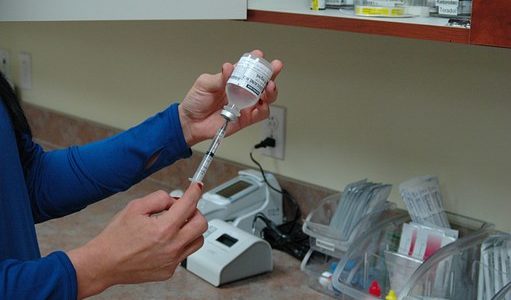Source: Mayo Clinic News Network .
A group of 118 of the nation’s leading cancer experts have drafted a prescription for reducing the high cost of cancer drugs and voiced support for a patient-based grassroots movement demanding action on the issue. Their recommendations and support are outlined in a commentary, co-authored by the group, in the journal Mayo Clinic Proceedings.
“High cancer drug prices are affecting the care of patients with cancer and our health care system,” says lead author Dr. Ayalew Tefferi, a hematologist at Mayo Clinic. “The average gross household income in the U.S. is about $52,000 per year. For an insured patient with cancer who needs a drug that costs $120,000 per year, the out-of-pocket expenses could be as much as $25,000 to $30,000 more than half their average household income.”
The group cites a 2015 study by D.H. Howard and colleagues, published in the Journal of Economic Perspectives, which found that cancer drug prices have risen by an average of $8,500 per year over the past 15 years.
“When you consider that cancer will affect 1 in 3 individuals over their lifetime, and with recent trends in insurance coverage that put a heavy financial burden on patients with out-of-pocket expenses, you quickly see that the situation is not sustainable,” Dr. Tefferi, says. “It’s time for patients and their physicians to call for change.”
The group says these actions would improve the situation and allow market forces to work better:
(1) Creating a post-FDA drug approval review mechanism to propose a fair price for new treatments, based on the value to patients and health care.
(2) Allowing Medicare to negotiate drug prices.
(3) Allowing the Patient-Centered Outcomes Research Institute, created through the Affordable Care Act initiatives to evaluate the benefits of new treatments, and similar organizations to include drug prices in their assessments of the treatment value.
(4) Allowing importation of cancer drugs across borders for personal use (e.g., prices in Canada are about half of prices in the U.S.).
(5) Passing legislation to prevent drug companies from delaying access to generic drugs (pay-for-delay).
(6) Reforming the patent system to make it more difficult to prolong product exclusivity unnecessarily (patent “evergreening”).
(7) Encouraging organizations that represent cancer specialists and patients (e.g., American Society of Clinical Oncology, American Society of Hematology, American Association for Cancer Research, American Cancer Society, National Comprehensive Cancer Network) to consider the overall value of drugs and treatments in formulating treatment guidelines.
The group also supports the patient-based, grass-roots movement on change.org that advocates against high cancer drug prices with the goal of drawing the attention of pharmaceutical companies and elected representatives to this issue. The authors write, “with proper support of these grass-roots efforts and proper use of that support downstream, it should be possible to focus the attention of pharmaceutical companies on this problem and to encourage our elected representatives to more effectively advocate for the interests of their most important constituents among the stakeholders in cancer – American cancer patients.”
July 23, 2015


Be the first to comment on "Cancer experts demand action on reducing high-cost drugs"